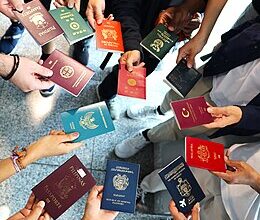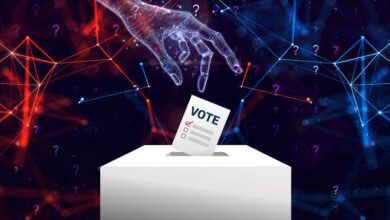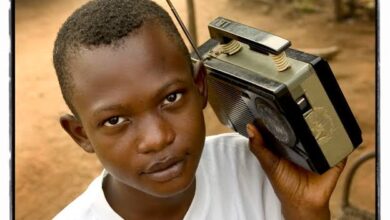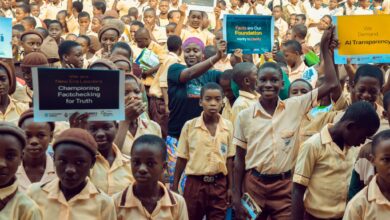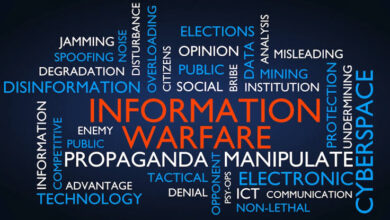How MyAiFactchecker is Used to Counter Violence Extremism in West African Countries

By Oluwaseye Ogunsanya
Brain Builders Youth Development Initiative’s AI-driven fact-checking tool, MyAiFactchecker, is proving to be highly effective in countering misinformation across West Africa.
Designed to empower Africans with the ability to quickly and accurately verify news, social media posts, and other online content, MyAiFactchecker leverages cutting-edge AI technology to provide a user-friendly interface with functionalities such as a chatbot, feedback mechanism, and voice search capability. It is available in multiple languages, including English, Swahili, French, Arabic, and popular local Nigerian languages.
Since its launch earlier this year, the tool has been utilised by over 15,345 users, further solidifying its impact and effectiveness in addressing misinformation in various sectors such as politics, health, economy, and security.
According to data gathered on its usage, MyAiFactchecker has processed over 10,000 queries, and feedback from users — especially journalists — has been overwhelmingly positive, helping it gain global visibility.
Furthermore, the tool is playing a significant role in mitigating the impact of violent extremism on electoral processes, democracy, public health, and societal stability in West African countries like Nigeria, Mali, Niger, Burkina Faso, and other countries in the Sahel and Lake Chad Basin.
These regions have become hotspots for the predatory activities of violent extremist groups in recent years and the menace has largely been attributed to the confluence of weak and illegitimate governance, economic decline, and the worsening effects of climate change. However, MyAiFactchecker is proving essential in combating the spread of misinformation, which is often used by these groups to destabilise societies.
Role in Combating Hate Speech and Violent Extremism
Reports have identified that controlling the flow of information is critical to countering violent extremism. Extremist groups and terrorist organisations exploit the information ecosystem to propagate their ideologies, recruit members, and instill fear among citizens. For instance, a study by Brain Builders Youth Development Initiative on Information Pollution, New Technologies, and Extremism in West Africa stated, “West Africa is a battleground where the struggle for control over information is evident.
This environment becomes fertile ground for information disorder, especially when the demand for information is high, exacerbating the prevalence of misinformation, disinformation, mal-information, fake news, and hate speech.”
This is where MyAiFactchecker plays a vital role by helping users, including community leaders, journalists, and everyday citizens, to fact-check potentially harmful information.
In one notable case, the tool helped debunk a viral social media post falsely claiming a political figure in Mali had endorsed violent extremist activities. By quickly verifying the truth, the tool prevented the misinformation from spreading further and fueling tensions. It has also helped fellows (who are mostly journalists from Liberia, Cameroon, Burkina Faso, Serria Leone) of FactCheckAfrica’s AI Journalism Fellowship Programme to debunk false claims as it relates to violence.
In addition to countering violent extremism, MyAiFactchecker is helping to address other forms of information pollution capable of inciting hate and violence among social media users thereby playing a role in peacebuilding and conflict prevention in volatile regions. This is especially significant because the tool caters to Africa’s diverse linguistic, multicultural, and multi-ethnic landscape. Its multilingual capacity makes it accessible to a wide range of users across different social, ethnic, and linguistic groups.
For example, users have reported cases where local rumors of ethnic violence were rapidly fact-checked and debunked through MyAiFactchecker at one of our grassroots sensitisation programme on misinformation in a local community in Nigeria, preventing unnecessary conflicts.
A typical instance of use was during the recent #EndBadGovernace protest in Nigeria, announce as peaceful protest, in some states like Kano, Abuja and others, the protests were allegedly hijacked and turned chaotic, leading to interface between hoodlums and the security operatives. Not too long, misinformation and unrelated videos and contents starts to spread on social media about the chaotic events, and the use of MyAiFactchecker came into play to verify some of these contents.
Potential Challenges
Despite the achievements of the tool, there are some challenges that the tool must continue to address. One challenge is ensuring widespread adoption across rural and less tech-savvy populations who may lack access to smartphones or reliable internet connections. Additionally, pushback from extremist groups or misinformation purveyors could be a threat to the tool’s effectiveness. Ensuring continued support for outreach programmes and education on how to use MyAiFactchecker will be crucial in overcoming these challenges.
User Feedback
Feedback from the tool’s users has been overwhelmingly positive. Journalists have noted that the tool has helped them quickly verify claims, thereby ensuring more accurate reporting. Community leaders have reported using the tool to fact-check rumors that could have otherwise sparked conflict.
A notable success story comes from Nigeria, where MyAiFactchecker assisted in resolving a potentially dangerous situation involving false claims of ethnic violence. Upon verification, it was found that the rumors were baseless, preventing escalation and maintaining peace in the community.
Future Developments
Looking ahead, MyAiFactchecker plans to evolve by incorporating more advanced AI features to detect and counter misinformation. Further development will also focus on enhancing its ability to operate in regions with low internet connectivity and expanding its database of fact-checked information. This forward-looking approach will ensure that the tool remains effective in an ever-changing information landscape.
Additionally, long-term plans include collaboration with local governments and international organidations to implement policies that encourage the adoption of fact-checking tools like MyAiFactchecker at the grassroots level. The creation of a USSD code for offline access is also being explored to make the tool more accessible to users without internet access.
Finally, MyAiFactchecker has proven to be a groundbreaking solution in the fight against misinformation and violent extremism in West Africa. Its ability to reach diverse populations, combined with its AI-driven accuracy, has made it a vital resource for fact-checking in some of the most conflict-prone regions in the world and helping to maintain its role in ensuring a more informed, peaceful society.
